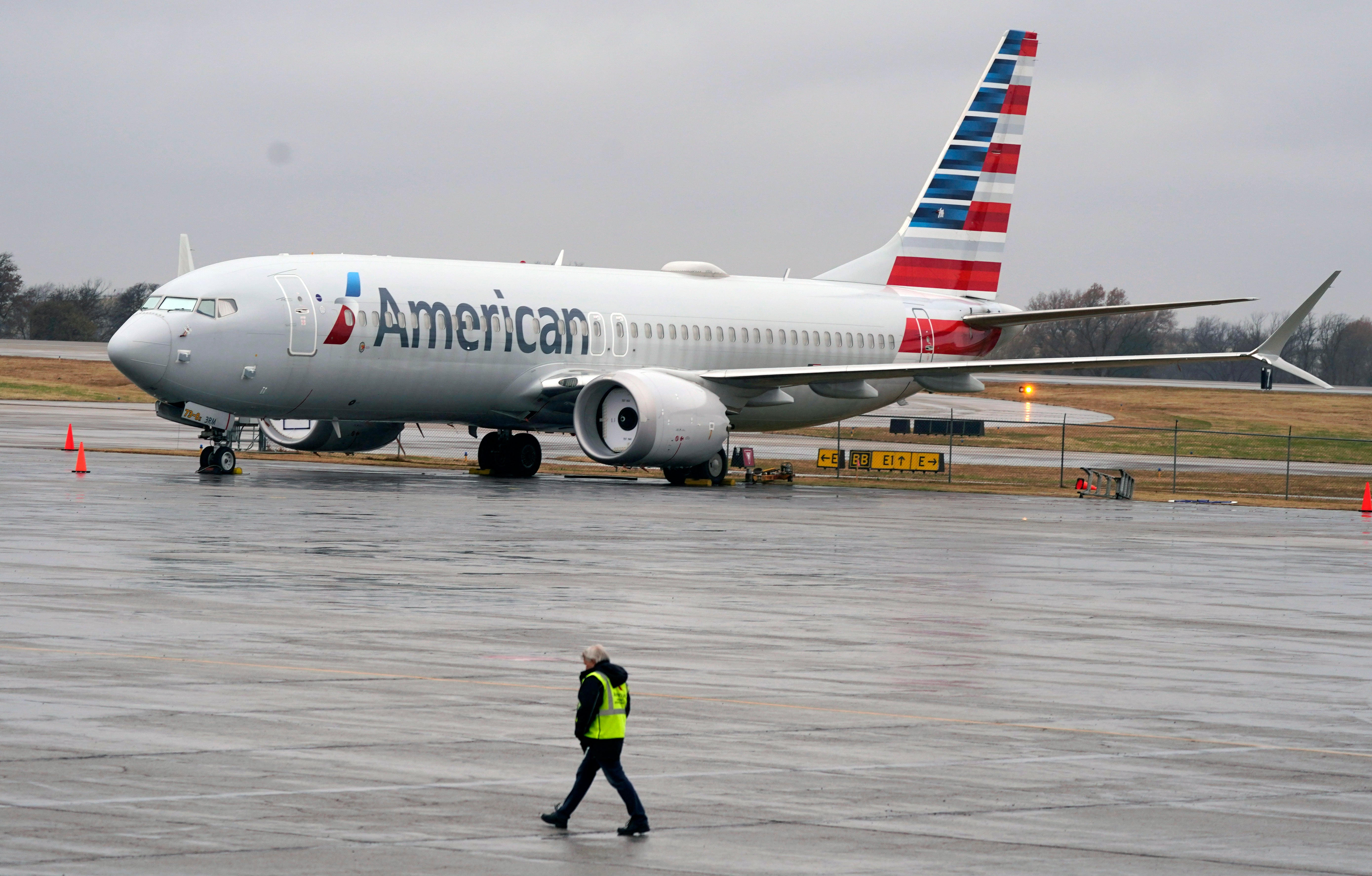Boeing ex-pilot's trial starts on fraud charges over 737 Max
A former Boeing test pilot is going on trial on charges of misleading regulators about the Boeing 737 Max, the model that was involved in two deadly crashes

Your support helps us to tell the story
From reproductive rights to climate change to Big Tech, The Independent is on the ground when the story is developing. Whether it's investigating the financials of Elon Musk's pro-Trump PAC or producing our latest documentary, 'The A Word', which shines a light on the American women fighting for reproductive rights, we know how important it is to parse out the facts from the messaging.
At such a critical moment in US history, we need reporters on the ground. Your donation allows us to keep sending journalists to speak to both sides of the story.
The Independent is trusted by Americans across the entire political spectrum. And unlike many other quality news outlets, we choose not to lock Americans out of our reporting and analysis with paywalls. We believe quality journalism should be available to everyone, paid for by those who can afford it.
Your support makes all the difference.A former Boeing test pilot is scheduled to go on trial Friday in federal court on charges of deceiving regulators who approved the 737 Max and the airlines that used the plane model in two crashes killing 346 people.
Mark A. Forkner is the only person facing criminal charges in the case, which brought widespread condemnation to Boeing.
Based on court filings by both sides, the trial is likely to feature much testimony from technical experts and also internal Boeing communications to shed light on discussions about the Max inside the company.
Until he left in 2018, Forkner was Boeing's chief technical pilot for the Max, which gave him a key role in evaluating the differences between the Max and previous 737s, and deciding how much training pilots needed to fly the new version.
According to the indictment, Forkner knew about changes that made a key flight-control system activate more often than originally planned, but he withheld that knowledge from Federal Aviation Administration regulators. As a result, information about the new system, known by the acronym MCAS, was deleted from an FAA report and airplane manuals. Most pilots didn't know about it.
MCAS played a key role in crashes in 2018 off the coast of Indonesia and 2019 in Ethiopia. The software reacted to faulty sensor readings by repeatedly pushing the noses of the planes down, and pilots were unable to regain control.
The indictment does not blame the crashes on Forkner, and federal prosecutors asked U.S. District Judge Reed O’Connor to prohibit mentioning the crashes in front of jurors.
However, Forkner's lawyers wanted to ask potential jurors what they have read and heard about the crashes. They said Forkner would not be facing criminal charges if the crashes had not occurred.
“The investigation could have landed on Boeing, or its senior executives who were once ‘subjects’ but now are witnesses at trial,” the lawyers wrote in a filing. Fear of being associated with the crashes caused witnesses “to curry favor with the prosecution,” they said.
The list of witnesses for the prosecution includes three Boeing employees, government experts, and representatives from two big Boeing customers: Southwest Airlines and American Airlines.
The defense could call more than two dozen current or former Boeing employees, including several test pilots and Curtis Ewbank, an engineer who quit after alleging that his bosses rejected safety improvements to the Max on cost grounds. Forkner is listed as a potential witness.
Boeing reached a settlement with federal officials to avoid prosecution for conspiracy. The company paid a $244 million fine as part of the January 2021 agreement.
Separately, families of passengers who died in the crashes are asking another federal judge in Fort Worth to undo the Boeing settlement and consider criminal charges against the company and top executives, who they say put profit above safety.
Family members argue that Boeing rushed a new version of the 737 into production because European rival Airbus was far ahead of it in developing a more fuel-efficient plane. MCAS was added to the Max to accommodate new, larger engines on the 50-year-old 737 design.
“The 737 has had its day,” said Adrian Toole, a British man whose daughter Joanna died in the second Max crash. “The whole thing should have been scrapped, and they should have put a new plane on the drawing board.”
___
David Koenig can be reached at www.twitter.com/airlinewriter